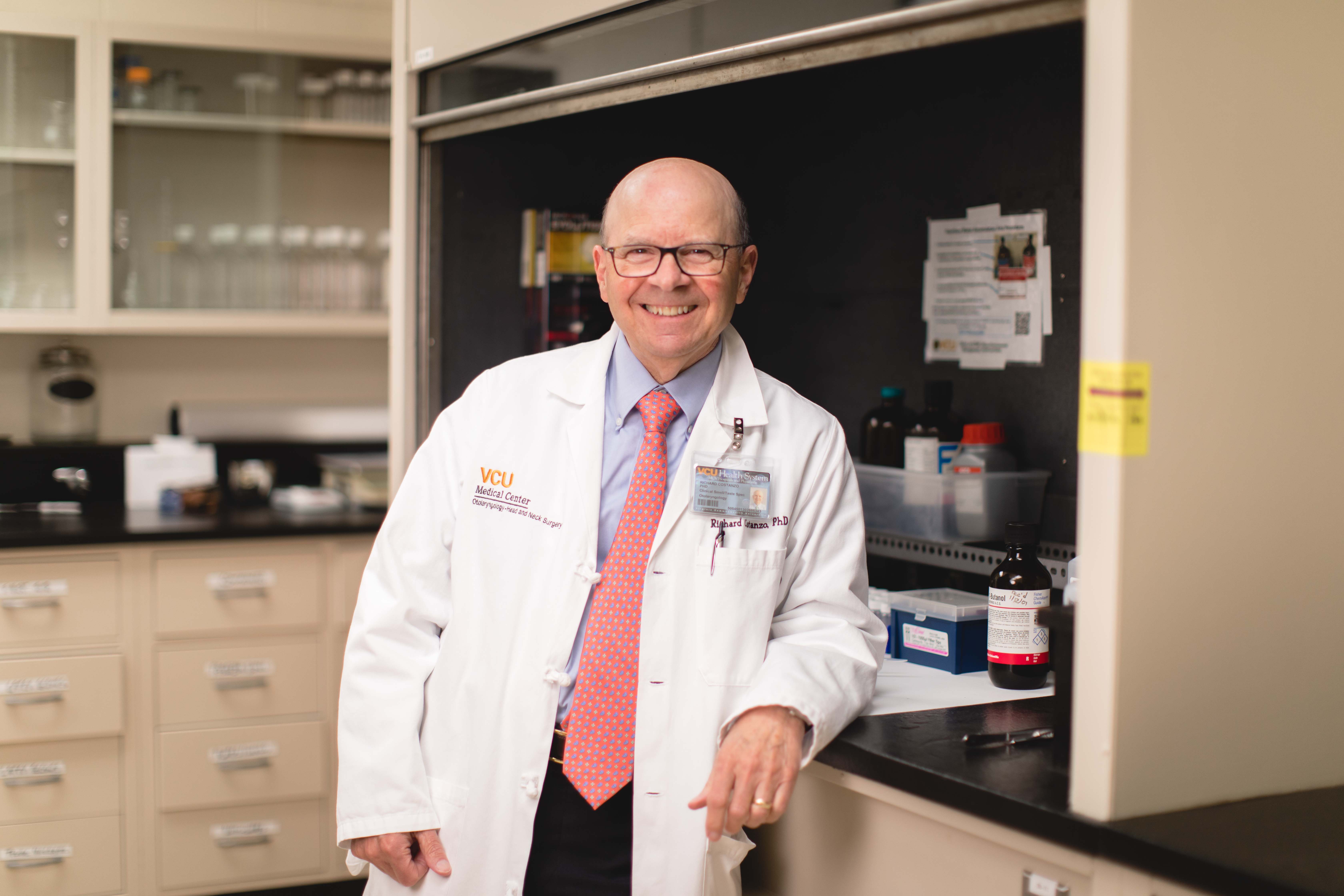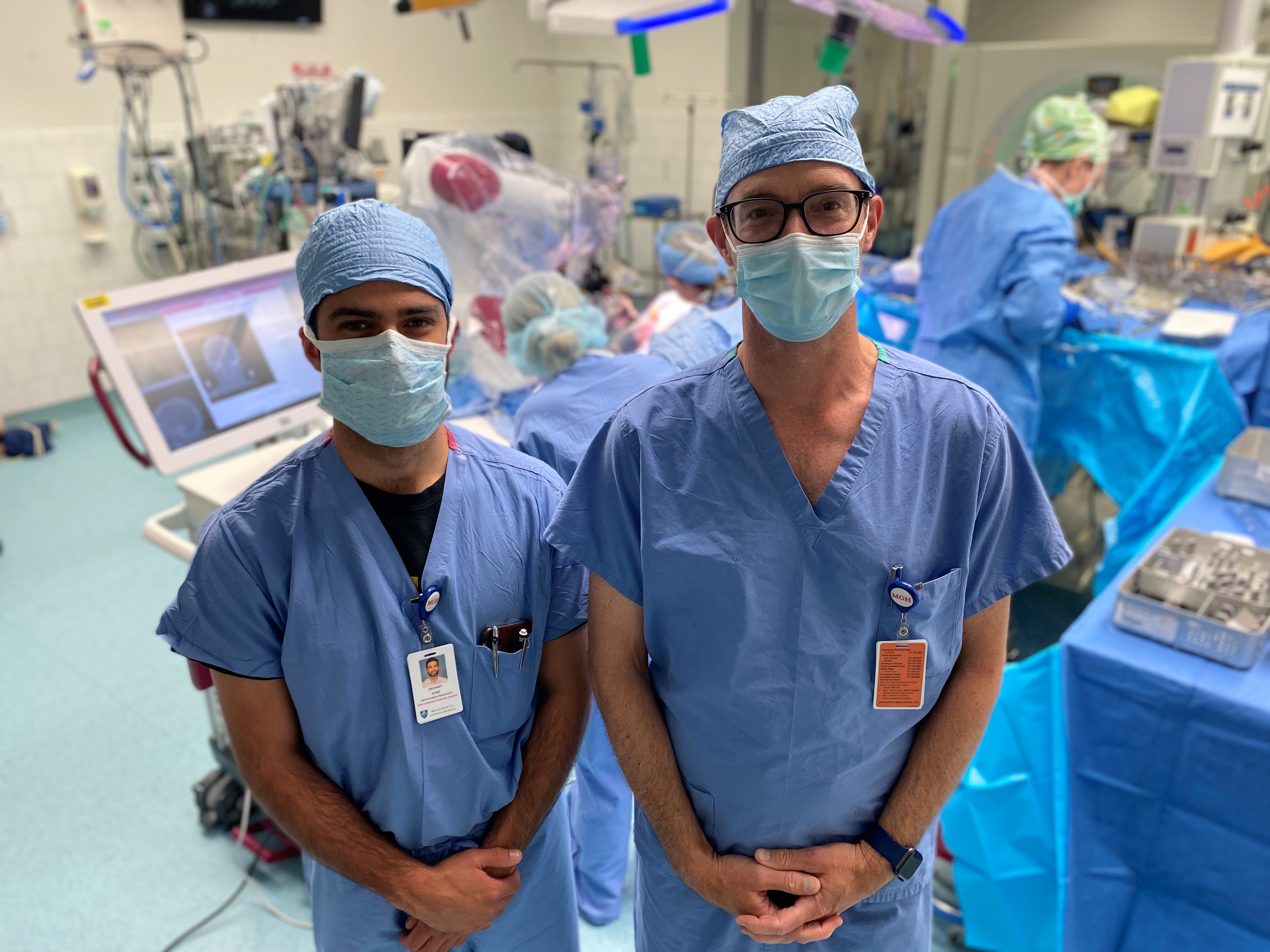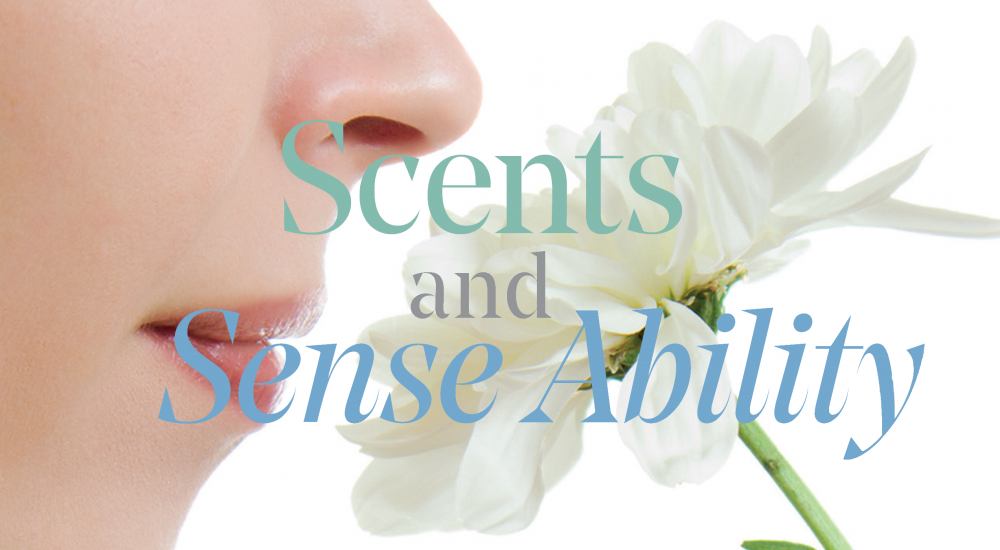Dr. Richard Costanzo receives career achievement award for pioneering smell research
After four decades of research into developing new ways to restore patients’ sense of smell, Richard Costanzo, Ph.D., is this year’s recipient of the highest honor from the Association for Chemoreception Sciences.

Richard Costanzo, Ph.D., professor emeritus in the Department of Physiology and Biophysics, has dedicated his career to smell research. (Photo by DeAudrea 'Sha' Aguado, VCU School of Medicine)
When Richard Costanzo, Ph.D., flew to Florida in early May for the annual awards ceremony hosted by the Association for Chemoreception Sciences, or AChemS, it was the first time he had traveled to a professional meeting since before the start of the COVID-19 pandemic. While the prospect of a large indoor gathering initially made him wary, Costanzo was thrilled and humbled to receive the professional society’s highest honor, the Max Mozell Award for Outstanding Achievement in the Chemical Senses.
The award recognizes the accomplishments of a senior-level scientist whose research record displays major contributions to the field of the chemical senses.
“When you put your whole career and all your energy into something, then to get a career achievement award from your peers, I don’t think there’s anything like it,” said Costanzo, professor emeritus in the Department of Physiology and Biophysics. “It’s hard to describe. It’s incredibly rewarding.”
It is especially meaningful because Max Mozell, Ph.D., the award’s namesake and founder of AChemS, was one of Costanzo's first mentors in the field. Mozell died of COVID-19 in 2020 at age 90, and accepting the award was bittersweet for Costanzo.
“If I’d gotten this award two or three years ago, Max would have been able to see this,” he said. “That organization has been like family to me so to be recognized for this is especially nice.”
David Chelmow, M.D., interim dean of VCU School of Medicine, commended Costanzo for the well-earned accolade.
“Dr. Costanzo is not just an esteemed scientist but a role model in his field and beyond,” Chelmow said. “This award is a testament to the dedication he has displayed throughout his career. We are grateful for his continued leadership and innovation in the field of smell and taste research, especially with millions of people around the world experiencing long COVID symptoms.”
Early in his career, Costanzo developed an interest in sensory physiology, which was a relatively new area of study at the time. Shortly after joining the faculty at the School of Medicine in 1979, he cofounded the Smell and Taste Disorders Center, making VCU one of the first academic medical centers in the U.S. with a clinic and research lab dedicated to smell and taste.
With more than 40 years of continuous funding from the National Institutes of Health, Costanzo has led groundbreaking studies to further understand smell and taste disorders and develop new treatment options for patients. He is a self-described “hardware geek” and has spent years developing an olfactory implant system for patients who have lost their sense of smell due to an injury, illness or underlying condition that impacts the part of the brain responsible for receiving smell. The technology will function like a cochlear implant, directly stimulating places in the brain “to generate some sort of useful smell perceptions.” Costanzo predicts that the device is 10–15 years away from being available to patients.
“It’s a long process to make a device and get it to the point where you can safely implant it in patients,” Costanzo said. “But the scientific part of it has moved very nicely. We laid the groundwork with injury and repair research, and after studying it for 40 years, have finally come up with something that might actually work.”


